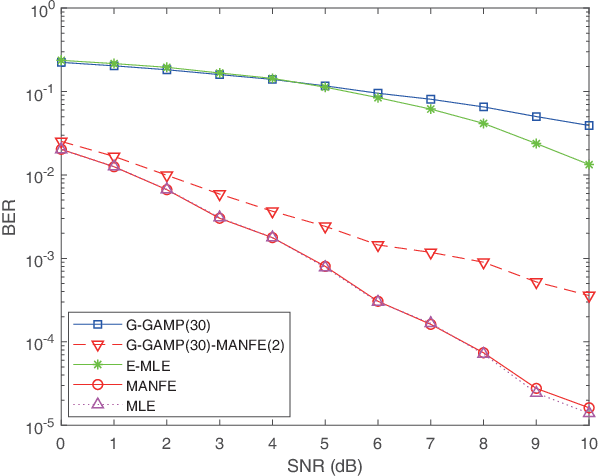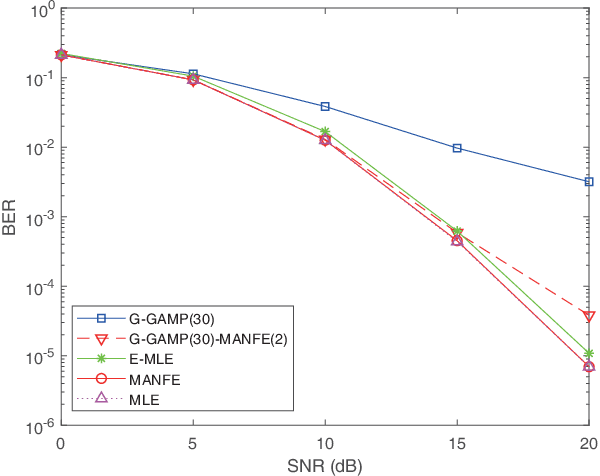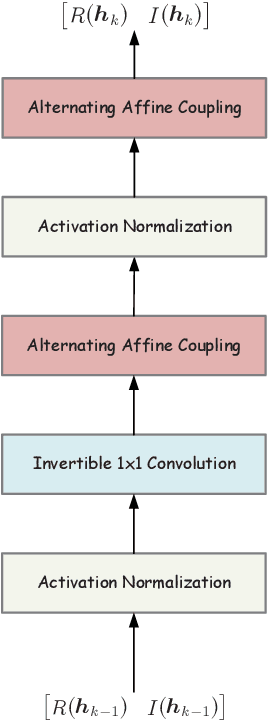Le He
Asynchronous Risk-Aware Multi-Agent Packet Routing for Ultra-Dense LEO Satellite Networks
Oct 31, 2025Abstract:The rise of ultra-dense LEO constellations creates a complex and asynchronous network environment, driven by their massive scale, dynamic topologies, and significant delays. This unique complexity demands an adaptive packet routing algorithm that is asynchronous, risk-aware, and capable of balancing diverse and often conflicting QoS objectives in a decentralized manner. However, existing methods fail to address this need, as they typically rely on impractical synchronous decision-making and/or risk-oblivious approaches. To tackle this gap, we introduce PRIMAL, an event-driven multi-agent routing framework designed specifically to allow each satellite to act independently on its own event-driven timeline, while managing the risk of worst-case performance degradation via a principled primal-dual approach. This is achieved by enabling agents to learn the full cost distribution of the targeted QoS objectives and constrain tail-end risks. Extensive simulations on a LEO constellation with 1584 satellites validate its superiority in effectively optimizing latency and balancing load. Compared to a recent risk-oblivious baseline, it reduces queuing delay by over 70%, and achieves a nearly 12 ms end-to-end delay reduction in loaded scenarios. This is accomplished by resolving the core conflict between naive shortest-path finding and congestion avoidance, highlighting such autonomous risk-awareness as a key to robust routing.
SCA-LLM: Spectral-Attentive Channel Prediction with Large Language Models in MIMO-OFDM
Sep 09, 2025Abstract:In recent years, the success of large language models (LLMs) has inspired growing interest in exploring their potential applications in wireless communications, especially for channel prediction tasks. However, directly applying LLMs to channel prediction faces a domain mismatch issue stemming from their text-based pre-training. To mitigate this, the ``adapter + LLM" paradigm has emerged, where an adapter is designed to bridge the domain gap between the channel state information (CSI) data and LLMs. While showing initial success, existing adapters may not fully exploit the potential of this paradigm. To address this limitation, this work provides a key insight that learning representations from the spectral components of CSI features can more effectively help bridge the domain gap. Accordingly, we propose a spectral-attentive framework, named SCA-LLM, for channel prediction in multiple-input multiple-output orthogonal frequency division multiplexing (MIMO-OFDM) systems. Specifically, its novel adapter can capture finer spectral details and better adapt the LLM for channel prediction than previous methods. Extensive simulations show that SCA-LLM achieves state-of-the-art prediction performance and strong generalization, yielding up to $-2.4~\text{dB}$ normalized mean squared error (NMSE) advantage over the previous LLM based method. Ablation studies further confirm the superiority of SCA-LLM in mitigating domain mismatch.
Will you donate money to a chatbot? The effect of chatbot anthropomorphic features and persuasion strategies on willingness to donate
Dec 28, 2024

Abstract:This work investigates the causal mechanism behind the effect of chatbot personification and persuasion strategies on users' perceptions and donation likelihood. In a 2 (personified vs. non-personified chatbot) x 2 (emotional vs. logical persuasion strategy) between-subjects experiment (N=76), participants engaged with a chatbot that represented a non-profit charitable organization. The results suggest that interaction with a personified chatbot evokes perceived anthropomorphism; however, it does not elicit greater willingness to donate. In fact, we found that commonly used anthropomorphic features, like name and narrative, led to negative attitudes toward an AI agent in the donation context. Our results showcase a preference for non-personified chatbots paired with logical persuasion appeal, emphasizing the significance of consistency in chatbot interaction, mirroring human-human engagement. We discuss the importance of moving from exploring the common scenario of a chatbot with machine identity vs. a chatbot with human identity in light of the recent regulations of AI systems.
Learning based signal detection for MIMO systems with unknown noise statistics
Jan 21, 2021



Abstract:This paper aims to devise a generalized maximum likelihood (ML) estimator to robustly detect signals with unknown noise statistics in multiple-input multiple-output (MIMO) systems. In practice, there is little or even no statistical knowledge on the system noise, which in many cases is non-Gaussian, impulsive and not analyzable. Existing detection methods have mainly focused on specific noise models, which are not robust enough with unknown noise statistics. To tackle this issue, we propose a novel ML detection framework to effectively recover the desired signal. Our framework is a fully probabilistic one that can efficiently approximate the unknown noise distribution through a normalizing flow. Importantly, this framework is driven by an unsupervised learning approach, where only the noise samples are required. To reduce the computational complexity, we further present a low-complexity version of the framework, by utilizing an initial estimation to reduce the search space. Simulation results show that our framework outperforms other existing algorithms in terms of bit error rate (BER) in non-analytical noise environments, while it can reach the ML performance bound in analytical noise environments. The code of this paper is available at https://github.com/skypitcher/manfe.
 Add to Chrome
Add to Chrome Add to Firefox
Add to Firefox Add to Edge
Add to Edge